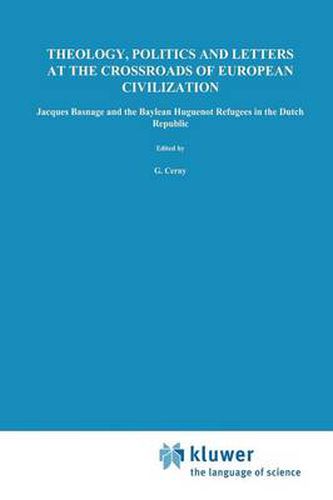Readings Newsletter
Become a Readings Member to make your shopping experience even easier.
Sign in or sign up for free!
You’re not far away from qualifying for FREE standard shipping within Australia
You’ve qualified for FREE standard shipping within Australia
The cart is loading…






This title is printed to order. This book may have been self-published. If so, we cannot guarantee the quality of the content. In the main most books will have gone through the editing process however some may not. We therefore suggest that you be aware of this before ordering this book. If in doubt check either the author or publisher’s details as we are unable to accept any returns unless they are faulty. Please contact us if you have any questions.
The Character of Seventeenth-Century French Protestantism and the Place of the Huguenot Refuge following the Revocation of the Edict of Nantes Thirty-seven years ago the late Emile-G. Leonard regretted that there were so few historical studies of seventeenth-century French Protestantism and no general 1 historical synthesis for the period as a whole. At the time Leonard’s observation was accurate. Seventeenth-century French Protestantism traditionally remained a questionable and problematical subject for historians. All too frequently historians neglected it in favor of emphasizing its origins in the second-half of the sixteenth century and its renascence since the French Revolution. When the rare historian broke his silence and considered French Protestantism in the seventeenth-century, was meager and generally ambivalent or negative. The historiographer his treatment of seventeenth-century French Protestantism could only cite the outstanding works of Jean Pannier and Orentin Douen, which taken together emphasized the new pre eminence of Parisian Protestantism in the seventeenth century, and the genuine works of synthesis by John Vienot and Matthieu Lelievre, which again had to be placed side by side in order to complete coverage of the whole of the seventeenth 2 century. The only true intellectual history of seventeenth-century French Protestantism was the study by Albert Monod, which, however, dealt with the second-half of the century and, then, only in the broad context of both Protestant 3 and Catholic thought responding to the challenge of modern rationalism.
$9.00 standard shipping within Australia
FREE standard shipping within Australia for orders over $100.00
Express & International shipping calculated at checkout
This title is printed to order. This book may have been self-published. If so, we cannot guarantee the quality of the content. In the main most books will have gone through the editing process however some may not. We therefore suggest that you be aware of this before ordering this book. If in doubt check either the author or publisher’s details as we are unable to accept any returns unless they are faulty. Please contact us if you have any questions.
The Character of Seventeenth-Century French Protestantism and the Place of the Huguenot Refuge following the Revocation of the Edict of Nantes Thirty-seven years ago the late Emile-G. Leonard regretted that there were so few historical studies of seventeenth-century French Protestantism and no general 1 historical synthesis for the period as a whole. At the time Leonard’s observation was accurate. Seventeenth-century French Protestantism traditionally remained a questionable and problematical subject for historians. All too frequently historians neglected it in favor of emphasizing its origins in the second-half of the sixteenth century and its renascence since the French Revolution. When the rare historian broke his silence and considered French Protestantism in the seventeenth-century, was meager and generally ambivalent or negative. The historiographer his treatment of seventeenth-century French Protestantism could only cite the outstanding works of Jean Pannier and Orentin Douen, which taken together emphasized the new pre eminence of Parisian Protestantism in the seventeenth century, and the genuine works of synthesis by John Vienot and Matthieu Lelievre, which again had to be placed side by side in order to complete coverage of the whole of the seventeenth 2 century. The only true intellectual history of seventeenth-century French Protestantism was the study by Albert Monod, which, however, dealt with the second-half of the century and, then, only in the broad context of both Protestant 3 and Catholic thought responding to the challenge of modern rationalism.